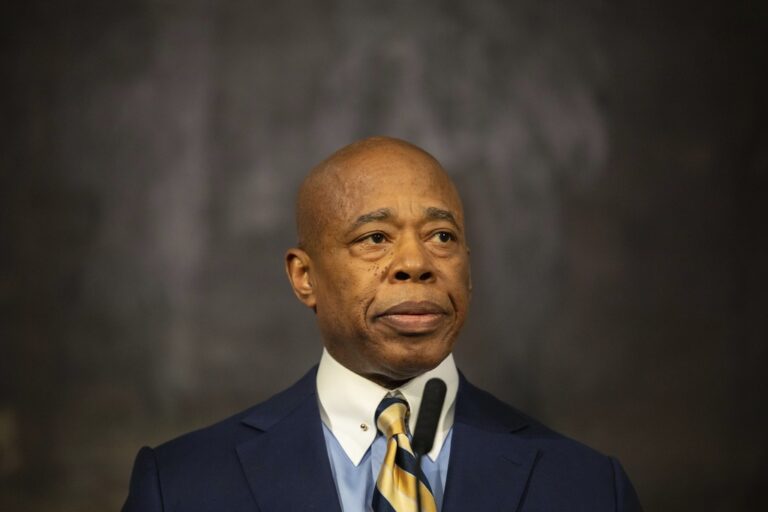Virginia Republicans are currently at war with each other, and President Donald Trump is a big reason why.
GOP lawmakers are fighting over whether to expand Medicaid to about 300,000 low-income adults, a stalemate that has blocked passage of the state budget and threatens a potential government shutdown.
But at a deeper level, the battle is over whether Republicans should embrace more liberal policies as a way of blunting voter unhappiness with the president in an increasingly Democratic-leaning state. Similar fights could be coming to statehouses around the country, just as Virginia’s dramatic off-year election last year could be a preview of this year’s contests.
Virginia was the first state to see its state legislature reshaped by an anti-Trump wave, as Democrats made unexpectedly large gains in the state House. Virginia House Republicans went from a near supermajority to a slim 51-49 advantage, prompting top GOP leaders to embrace Medicaid expansion during this year’s legislative session.
“We’re just trying to be political realists,” said Del. Terry Kilgore, a powerful lawmaker from Virginia’s southwest coal country. He said the Trump administration’s embrace of work requirements and other conservative add-ons to Medicaid have made expanding the program a smart move for Republicans.
“It’s here to stay, so Virginia has to make the best of a bad situation,” Kilgore said.
But the Democratic wave only hit one chamber; the state Senate wasn’t up for election last year. Most Senate Republicans remain firmly opposed to expansion, saying that’s what they’ve long campaigned on and that’s what their constituents continue to want.
“Everybody that I see out when I go in my normal travels is of the opinion to hold the line,” said Republican Sen. Charles Carrico.
A federal-state collaboration originally meant for poor families and severely disabled people, Medicaid has grown to become the largest government health insurance program, now covering 1 in 5 people. Under former President Barack Obama’s health law, states got the option of expanding Medicaid to cover more low-income adults.
Most states expanded Medicaid, but Virginia was one of those that refused, with opponents saying its long-term costs are unsustainable even with federal promises to pay for no less than 90 percent of the costs.
Democrats campaigned heavily on expanding Medicaid last year and some House Republicans are eager to take the issue off the table for next year’s election, when both House and Senate seats are up. But expansion opponents said pro-expansion Republicans are at risk of losing key supporters.
Lauren Toomey, a deputy state director for Americans for Prosperity, said the tea party group is “energized” by the issue and is already using advertising to target pro-expansion lawmakers.
“While the Trump administration is trying to shrink Obamacare in D.C., Delegate Terry Kilgore has forced Obamacare into Virginia’s budget,” says one radio spot running in Kilgore’s district.
Virginia Republicans are also split on where the Trump administration stands on the issue. Senate Republicans said the White House has told them directly not to expand Medicaid. White House budget director Mick Mulvaney waded into the debate earlier this month via Twitter. He said the Trump administration is “committed to addressing the unsustainable growth” of the program.
But The Office of Management and Budget is not the agency that approves or denies Medicaid waivers. That agency is the Centers for Medicare and Medicaid Services, part of the Health and Human Services Department.
Health and Human Services Secretary Alex Azar pointedly sidestepped questions from reporters last week about Mulvaney’s comments and the prospect of Virginia expanding Medicaid.
“I’ll let Virginia decide what they’re going to do there,” Azar said.
Trump’s recent budget proposal called for repealing Medicaid expansion and overhauling the program to limit future federal financing. But it’s highly unlikely that Congress will move ahead with that plan after failing to do so last year.
Virginia lawmakers adjourned the regular 2018 legislative session last week without passing a state spending plan because of the dispute over Medicaid expansion and a related hospital tax.
Tensions flared prior to lawmakers leaving town. Senate Republican Majority Leader Tommy Norment suggested in a floor speech that pro-expansion GOP House Speaker Kirk Cox wasn’t fit to lead his caucus. Norment apologized a day later.
Democratic Gov. Ralph Northam, a pediatric neurologist who has made expanding Medicaid a top priority, has called lawmakers back for a special session next month to finish work on the budget. If not budget is passed, state government will shut down July 1.
As lawmakers were leaving town, Northam said pro-expansion Republicans were listening to what the voters want.
“There was an awakening in the House of Delegates,” Northam said. “I can’t say that the Senate didn’t hear, but I don’t think they paid as much of attention.”
(AP)











